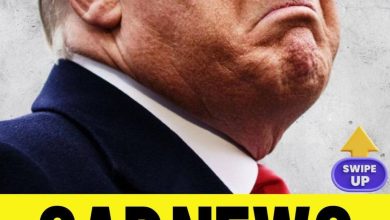
Shocking Political Transformation Sends Ripples Through Conservative Establishment
Michael Reagan, the eldest son of President Ronald Reagan and long known for his vocal criticism of Donald Trump, has delivered one of the most surprising endorsements of the year by publicly praising Trump’s recent initiatives on government efficiency.
Just months ago, Reagan—whose columns and cable‑news appearances frequently cast Trump as antithetical to his father’s small‑government ideals—argued that the former president’s combative style and policy missteps disqualified him from conservative praise. Today, however, Reagan insists that he misjudged Trump’s substance amid the noise.
In a statement that rippled across the conservative establishment, Reagan lauded the newly minted Department of Government Efficiency, calling it “exactly the sort of bold reform my father would have championed.” He went on to emphasize results over rhetoric, writing on social media, “Too long we’ve allowed style wars to distract us from meaningful policy gains. Judge this administration by its output, not its Twitter feed. Give Trump time and get out of the way.” For Reagan, whose very name conjures memories of an era defined by deregulation and streamlined government, this represents a profound realignment: he now sees Trump’s efficiency efforts—slashing red tape in federal procurement, consolidating overlapping agencies, and leveraging technology to speed up licensing and permits—as a continuation of the Reagan legacy.
The political shockwaves were felt immediately in conservative circles. Columnists who once cited Reagan’s critiques as proof of Trump’s failings scrambled to reassess. Some hailed his about‑face as a sign that “even legacy conservatives are coming around,” while others dismissed it as opportunistic. Never one to shy from controversy, Reagan has made clear that his loyalty lies not with party brands but with principles he believes deliver tangible benefits to taxpayers. His evolution underscores a broader trend within the GOP: a growing faction willing to set aside personal animus if a candidate delivers on core conservative promises of smaller, smarter government.
Yet Reagan’s turnaround also raises questions about the staying power of ideological purity in today’s politics. If one of the most steadfast voices of the Reagan era can pivot so sharply, what does that mean for rank‑and‑file activists who have tied their identity to opposing Trump? Party strategists are already recalibrating their messaging, recognizing that Reagan’s endorsement affords Trump an imprimatur that could sway long‑hesitant moderates. As the conservative movement grapples with its own internal divisions, Michael Reagan’s endorsement reminds us that political alignments remain fluid—and that, in the eyes of some, effective governance ultimately trumps everything else.



